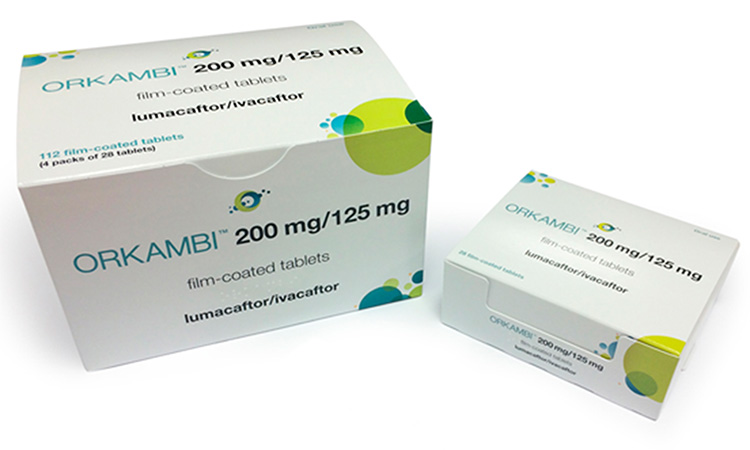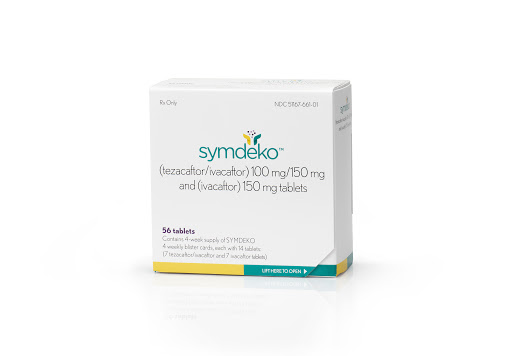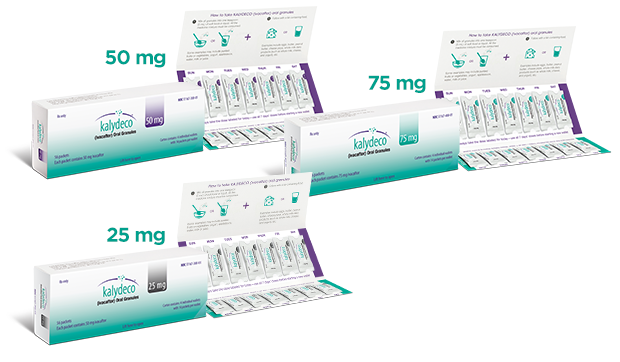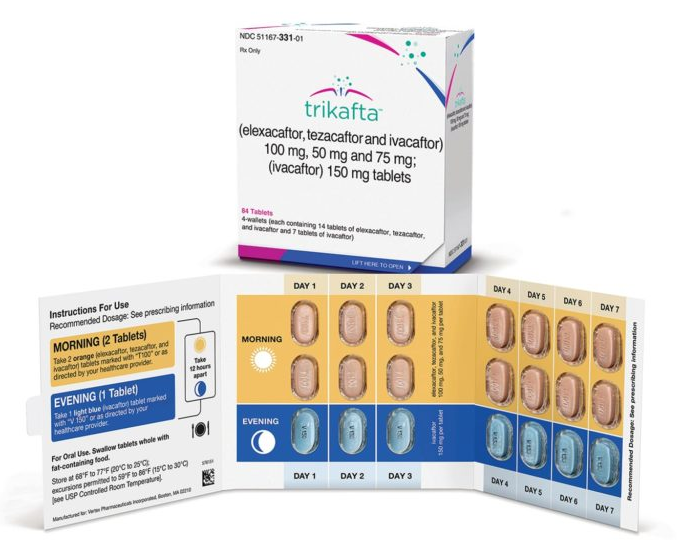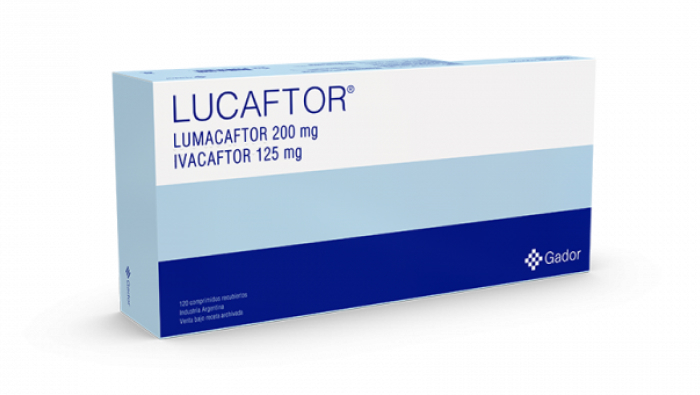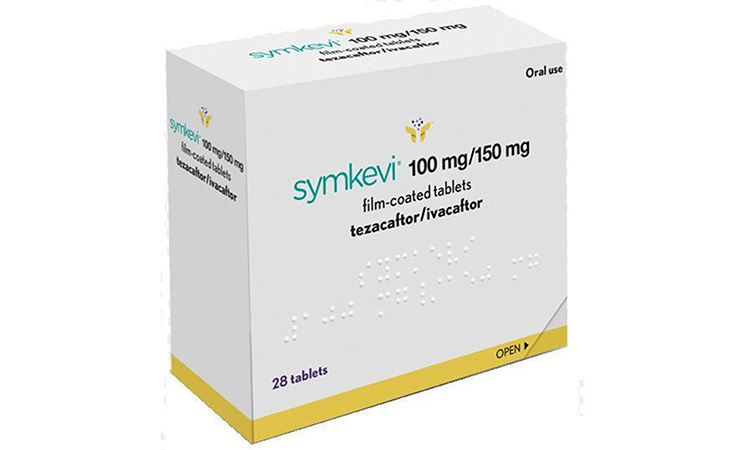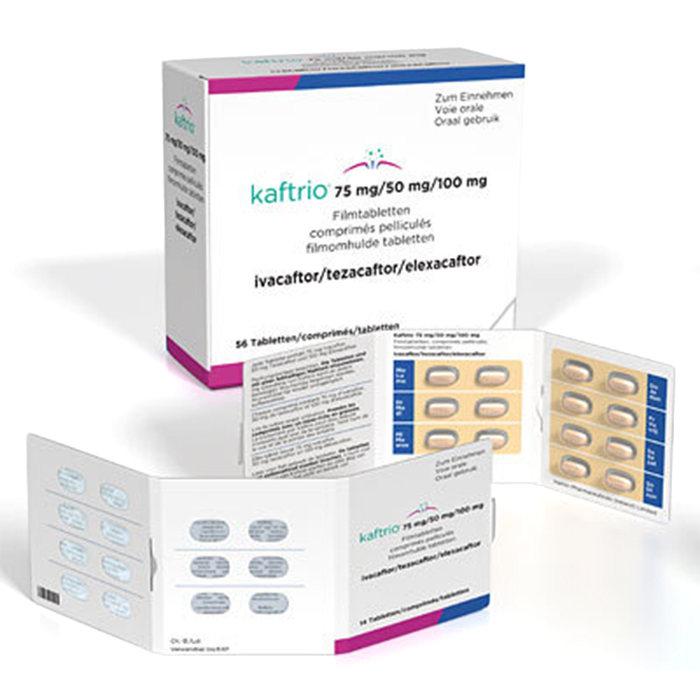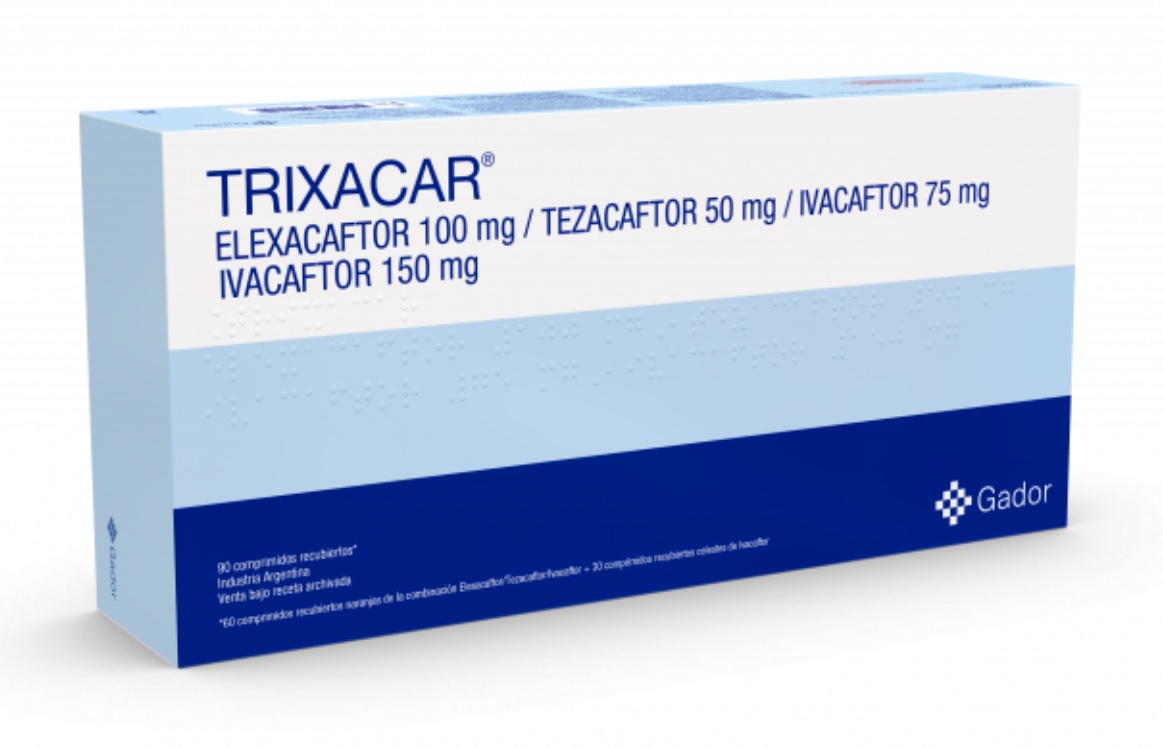New Cystic Fibrosis treatments 2024
New Cystic Fibrosis Treatments 2024
Cystic Fibrosis (CF) is a genetic disorder that affects the respiratory, digestive, and reproductive systems, characterized by the production of abnormally thick and sticky mucus within the body. This mucus can clog the airways, leading to severe respiratory problems, and also obstruct the pancreas, hindering proper digestion. People with CF often suffer from chronic lung infections and digestive issues. The disease is caused by mutations in the CFTR gene, which affects the protein that regulates salt and water movements in and out of cells. Early diagnosis and treatment are crucial for managing the symptoms and improving the quality of life for individuals with CF.
When considering treatment options for Cystic Fibrosis, it is important to work closely with a healthcare provider to tailor a regimen that addresses the specific needs and mutations present in the individual. Medications such as CFTR modulators are designed to correct the function of the defective protein made by the CFTR gene, and their use depends on the type of genetic mutation a patient has. Other treatments include enzyme supplements to aid digestion, antibiotics to treat lung infections, and airway clearance therapies to help loosen and remove mucus from the lungs. Lung transplants may be considered in severe cases. Ongoing research continues to provide new insights and more advanced treatments, making it essential for patients to stay informed about the latest options available.

Treatment options
| Treatment option | Estimated cost | Efficacy | Eligibility |
|---|---|---|---|
| Orkambi* | $23,000 per month | Improves lung function | Patients aged 6 years and older with two copies of the F508del mutation |
| Symdeko* | $21,000 per month | Improves lung function | Patients aged 6 years and older with two copies of the F508del mutation or one mutation that responds to treatment |
| Kalydeco* | $25,000 per month | Improves lung function | Patients aged 6 months and older with at least one mutation that responds to treatment |
| Trikafta* | $23,500 per month | Significantly improves lung function | Patients aged 6 years and older with at least one F508del mutation |
| Lucaftor | Not available | Potential to improve lung function | Currently experimental, not FDA approved |
| Symkevi* | $22,000 per month | Improves lung function | Patients aged 12 years and older with two copies of the F508del mutation or one mutation that responds to treatment |
| Kaftrio* | $23,000 per month | Significantly improves lung function | Patients aged 12 years and older with one F508del mutation and one minimal function mutation |
| Trixacar | Not available | Potential to improve lung function | Currently experimental, not FDA approved |
| Chest physiotherapy | Varies with provider | Helps clear mucus from lungs | All CF patients |
| Pulmozyme (Dornase alfa) | $2,500 - $4,000 per month | Thins mucus, improves lung function | All CF patients |
| Antibiotics | Varies with medication | Treats lung infections | All CF patients |
| High-calorie diet | Varies with dietary needs | Supports growth and maintains weight | All CF patients |
| Pancreatic enzyme supplements | $1,000 - $2,000 per month | Aids digestion and nutrition absorption | All CF patients with pancreatic insufficiency |
| CFTR Modulators (general) | Varies with specific medication | Improves CFTR protein function | Patients with specific genetic mutations |
| Ivacaftor | $25,000 per month | Improves lung function | Patients with specific gating mutations |
| Lumacaftor/Ivacaftor | $22,000 per month | Improves lung function | Patients aged 2 years and older with two copies of the F508del mutation |
| Tezacaftor/Ivacaftor | $22,000 per month | Improves lung function | Patients aged 6 years and older with two copies of the F508del mutation or one mutation that responds to treatment |
Treatments options in detail
Standard Treatments for Cystic Fibrosis
Cystic Fibrosis (CF) is a genetic disorder that affects the respiratory and digestive systems. The cornerstone of CF treatment involves a combination of medication, airway clearance techniques, and pulmonary rehabilitation. The most common treatments include inhaled bronchodilators, which help to open the airways, and mucolytics like dornase alfa, which thin the mucus to make it easier to clear from the lungs. Hypertonic saline is also used to hydrate the airway surface and aid in mucus clearance.
Antibiotics are frequently prescribed to treat and prevent lung infections, which can be administered orally, intravenously, or inhaled. Pancreatic enzyme supplements are essential for patients with CF to help them digest food and absorb nutrients. Nutritional support, including vitamin supplements, is also a critical aspect of managing CF, as malnutrition is a common issue.
Airway clearance techniques (ACTs) are physical methods used to help clear mucus from the lungs, and they are a vital part of daily CF care. These can include chest physiotherapy, positive expiratory pressure (PEP) therapy, and exercise. Pulmonary rehabilitation programs, which combine exercise, education, and support, are also recommended to improve the quality of life for people with CF.
CFTR Modulator Therapies
A significant advancement in CF treatment has been the development of CFTR modulator therapies. These medications target the underlying cause of CF by correcting the function of the defective CFTR protein responsible for the disease. Ivacaftor (Kalydeco) was one of the first CFTR modulators approved by the FDA and is effective in patients with specific mutations in the CFTR gene. It helps to improve the function of the CFTR protein, leading to better hydration and clearance of mucus from the airways.
Lumacaftor/ivacaftor (Orkambi) is another CFTR modulator that is approved for patients with two copies of the F508del mutation, the most common CF-causing mutation. It combines a corrector molecule (lumacaftor) with ivacaftor to improve the processing and function of the CFTR protein.
Tezacaftor/ivacaftor (Symdeko) and elexacaftor/tezacaftor/ivacaftor (Trikafta) are newer CFTR modulators that have been approved by the FDA. Symdeko is similar to Orkambi but is designed to have fewer side effects and is effective in a broader range of CFTR mutations. Trikafta, the most recent addition, is a triple combination therapy that has shown significant improvements in lung function and quality of life for people with at least one F508del mutation.
Experimental and Off-Label Treatments
In addition to approved treatments, there are experimental therapies and off-label uses of medications for CF. Experimental treatments may include gene therapy, which aims to correct or replace the defective CFTR gene, and stem cell therapy, which involves using stem cells to repair or replace damaged lung tissue.
Anti-inflammatory medications are sometimes used off-label to reduce lung inflammation, although their use is not specifically approved for CF. Inhaled corticosteroids and non-steroidal anti-inflammatory drugs (NSAIDs) may be prescribed in this context. In addition, statins, traditionally used to manage cholesterol, are being studied for their anti-inflammatory properties in CF.
European Medicines Agency (EMA) Approved Treatments
In Europe, the European Medicines Agency (EMA) has approved additional CFTR modulators such as lumacaftor/ivacaftor (Orkambi), tezacaftor/ivacaftor (Symkevi), and the combination of elexacaftor/tezacaftor/ivacaftor (Kaftrio) for use in certain populations with CF. These medications function similarly to their FDA-approved counterparts, targeting the defective CFTR protein to improve lung function and reduce symptoms.
Kaftrio, in particular, has been a significant development in the treatment of CF in Europe and has shown promising results in clinical trials. It is approved for patients with at least one F508del mutation in the CFTR gene. The use of these medications is based on the patient's specific genetic mutations, and genetic testing is an essential step in determining eligibility.
Other Considerations in CF Treatment
The treatment of CF is highly individualized and depends on many factors, including the severity of the disease, the specific CFTR mutations present, and the patient's overall health. Treatment plans often involve a multidisciplinary team of healthcare professionals, including pulmonologists, gastroenterologists, dietitians, and physical therapists.
Lung transplantation may be considered for individuals with advanced lung disease who do not respond to other treatments. This is a complex decision that involves careful evaluation and consideration of the risks and benefits.
Finally, it is important to note that while CFTR modulators represent a significant advance in the treatment of CF, they are not a cure. Research continues to focus on finding new treatments and ultimately a cure for CF. Patients and healthcare providers are encouraged to stay informed about the latest developments in CF care and to participate in clinical trials when appropriate.
Conclusion
In conclusion, the treatment of cystic fibrosis has evolved significantly over the years, with the introduction of CFTR modulators marking a new era in personalized medicine for this condition. While these treatments have improved the quality of life and life expectancy for many individuals with CF, ongoing research and the development of new therapies remain crucial for further advancements. It is essential for patients to work closely with their healthcare team to determine the best treatment strategy based on their specific needs.
Symptoms
Respiratory Symptoms
The most common symptoms of cystic fibrosis (CF) are related to the respiratory system. Persistent coughing, often producing thick mucus, is a hallmark symptom. This cough can sometimes be accompanied by wheezing and shortness of breath. Individuals with CF may also experience frequent lung infections, which can include pneumonia and bronchitis. These infections are often caused by bacteria that do not typically cause problems in people without CF. Over time, the recurrent infections can lead to lung damage and a decrease in lung function.
Digestive System Symptoms
Cystic fibrosis can also significantly affect the digestive system. The thick mucus associated with CF can block the ducts of the pancreas, preventing digestive enzymes from reaching the intestines to help break down food. This can lead to poor growth and weight gain in infants and children, and weight loss in adults. Malnutrition and vitamin deficiencies, especially in the fat-soluble vitamins A, D, E, and K, can occur because of the malabsorption of nutrients. Additionally, people with CF may experience frequent, greasy, and foul-smelling stools or constipation.
Sweat and Salinity
Individuals with CF have sweat glands that produce saltier sweat than is typical. This can lead to an imbalance of minerals in the body, which may cause heat exhaustion, especially in hot weather or during exercise. A simple test to measure the saltiness of a person's sweat is often used to help diagnose CF.
Reproductive System Symptoms
Males with cystic fibrosis often have congenital bilateral absence of the vas deferens (CBAVD), leading to infertility due to the blockage of sperm transport. Females may also have reduced fertility due to thick cervical mucus or other factors related to the disease.
Additional Symptoms
Other symptoms of cystic fibrosis can include sinus infections, nasal polyps, clubbing (rounding and enlargement of fingers and toes), and a barrel-shaped chest due to chronic lung infections and air trapping. CF can also lead to complications such as cystic fibrosis-related diabetes (CFRD) and liver disease due to the thickened bile that can block the bile ducts in the liver.
Respiratory Complications
Over time, the respiratory symptoms can lead to more serious complications, such as chronic respiratory failure, pneumothorax (collapsed lung), hemoptysis (coughing up blood), and cor pulmonale (right-sided heart failure due to chronic lung disease).
Meconium Ileus
In newborns, a condition called meconium ileus can be a symptom of cystic fibrosis. This is a blockage of the intestines by thick, sticky meconium (the first stool of an infant), which can be indicative of CF if present at birth.
Distal Intestinal Obstruction Syndrome (DIOS)
Distal intestinal obstruction syndrome (DIOS) can also occur, particularly in older children and adults with CF. DIOS is characterized by the blockage of the intestines by thickened intestinal contents, leading to abdominal pain, bloating, and constipation.
Exocrine Pancreatic Insufficiency (EPI)
Most people with cystic fibrosis develop exocrine pancreatic insufficiency (EPI), which means the pancreas can't produce enough digestive enzymes. This can lead to difficulty digesting food and absorbing vital nutrients, contributing to the digestive symptoms mentioned earlier.
CF-related Diabetes
Cystic fibrosis-related diabetes (CFRD) is a unique type of diabetes that is common in people with CF. CFRD shares some features with both type 1 and type 2 diabetes and can affect the management of CF due to its impact on lung function and overall health.
Impact on Growth and Development
Children with cystic fibrosis may experience delayed growth and puberty due to the body's inability to properly absorb nutrients. This can result in a shorter stature and delayed developmental milestones compared to their peers without CF.
Osteoporosis and Bone Health
Osteoporosis and reduced bone density are potential complications of cystic fibrosis, likely due to a combination of factors including malnutrition, vitamin deficiencies, and chronic inflammation.
Psychological Impact
The chronic nature of cystic fibrosis and its symptoms can also have a psychological impact on individuals with CF and their families. Anxiety, depression, and stress-related disorders are not uncommon due to the demands of the disease's management and its progressive nature.
Ear, Nose, and Throat Complications
CF can lead to recurrent sinusitis and the formation of nasal polyps, which may require surgical intervention. Hearing loss can also be a complication due to the frequent use of antibiotics that can be ototoxic.
Conclusion
The symptoms of cystic fibrosis can vary widely from person to person and can change over time. While respiratory and digestive symptoms are the most common, CF is a complex disease that can affect multiple systems in the body, leading to a range of symptoms and complications that require comprehensive medical care.
Cure
Current Status of Cystic Fibrosis Cure
As of the latest medical research and knowledge, there is no definitive cure for Cystic Fibrosis (CF). Cystic Fibrosis is a complex genetic disorder that affects the lungs and digestive system, among other organs, by causing thick, sticky mucus to build up. This mucus can clog the airways and trap bacteria, leading to infections, lung damage, and eventually, respiratory failure. While a cure remains elusive, there have been significant advancements in treatment that can greatly improve the quality of life and life expectancy for those with CF.
Advancements in Treatment and Management
The management of CF has improved dramatically over the past few decades with the development of new medications and therapies. These treatments aim to alleviate symptoms, reduce pulmonary infections, and manage digestive problems. The introduction of highly effective modulator therapies, such as elexacaftor/tezacaftor/ivacaftor (Trikafta), has been a significant breakthrough. These medications target the underlying cause of the disease by helping the defective CFTR protein function more effectively, leading to improved lung function and reduced disease symptoms.
Gene Therapy and Genetic Editing
Gene therapy and CRISPR-Cas9 gene-editing technology have been explored as potential curative approaches for CF. Gene therapy involves introducing correct copies of the defective CFTR gene into the cells of the patient's body. However, challenges such as efficient gene delivery to the affected cells, long-term expression of the introduced gene, and immune system reactions have limited its success. CRISPR-Cas9 offers a more precise method of correcting the genetic defect at the DNA level. While these technologies show promise, they are still in the experimental stages and are not yet available as standard treatments.
Lung Transplantation
In severe cases of CF where lung function has deteriorated significantly, lung transplantation may be considered. While a lung transplant can significantly improve lung function and quality of life, it is not a cure for CF, as the underlying genetic issue remains. Transplant recipients must take immunosuppressive drugs for the rest of their lives to prevent organ rejection, and these drugs can have serious side effects. Furthermore, the transplanted lungs can still become affected by CF-related complications over time.
Supportive Therapies and Lifestyle Adjustments
Supportive therapies such as chest physiotherapy, exercise, and nutritional support are integral to managing CF. These therapies help clear mucus from the lungs, improve physical strength, and ensure adequate nutrition, respectively. Lifestyle adjustments, including avoiding tobacco smoke and maintaining good hygiene to reduce the risk of infections, are also critical for people with CF. While these measures do not cure the disease, they are essential for maintaining health and prolonging life.
Complications and Comorbidities Management
Management of CF-related complications such as diabetes and liver disease is also a key part of CF care. CF-related diabetes (CFRD) is a unique type of diabetes that requires tailored treatment plans. Similarly, liver complications may necessitate specific interventions. Regular monitoring and early intervention for these comorbidities can prevent further deterioration of health.
Future Research and Potential Therapies
Ongoing research into CF continues to explore other potential treatments, including small molecule therapies that can correct the function of the CFTR protein or enhance its expression. Additionally, anti-inflammatory treatments and novel antimicrobials are being investigated to manage lung infections and inflammation, which are hallmarks of CF. The CF research community remains hopeful that these efforts will one day lead to a cure or more effective treatments that can significantly extend life expectancy and improve the quality of life for those with CF.
Conclusion
In conclusion, while there is currently no cure for Cystic Fibrosis, there have been substantial advances in the management and treatment of the disease. These advances have led to improved outcomes and longer lifespans for individuals with CF. Research into gene therapy, gene editing, and new pharmacological treatments continues, offering hope for future breakthroughs that could potentially lead to a cure. Until then, the focus remains on optimizing existing treatments and managing symptoms to improve the lives of those affected by this challenging condition.
Access Cystic Fibrosis medicines today
If Cystic Fibrosis medicines are not approved or available in your country (e.g. due to supply issues), you can access them via Everyone.org.
How Everyone.org works

Make an enquiry
Choose the medicine you want to access, answer a couple of questions, and upload your prescription to speed things up. We’ll get back to you within 24 hours.


Make an enquiry
Choose the medicine you want to access, answer a couple of questions, and upload your prescription to speed things up. We’ll get back to you within 24 hours.


Breeze through the paperwork
We'll guide you through the required documents for importing unapproved medicine, ensuring you have all the necessary information.


Get a personalized quote
We’ll prepare a quote for you, including medicine costs and any shipping, administrative, or import fees that may apply.


Receive your medicine
Accept the quote and we’ll handle the rest - sourcing and safely delivering your medicine.

Some text on this page has been automatically generated. Speak to your physician before you start a new treatment or medication.
Let's talk
If you have any questions, call us or send us a message through WhatsApp or email:
Contact us

